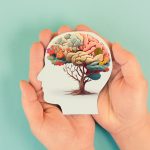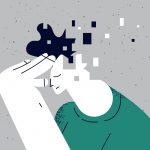Psychosis is a condition that affects a person’s mind and causes changes to the way that they think, feel and behave. A person who experiences psychosis may be unable to distinguish between reality and their imagination. People who are experiencing psychosis are sometimes referred to as psychotic. They may have hallucinations (where you see or hear things that are not there) and/or delusions (where you believe things that are untrue).
Continuing antipsychotic medication during pregnancy associated with reduced risk of schizophrenia relapse

Shuichi Suetani and Sarah Thomas highlight new research from Korea which suggests that antipsychotic medications do seem to help reduce the relapse of schizophrenia in pregnant women.
[read the full story...]








